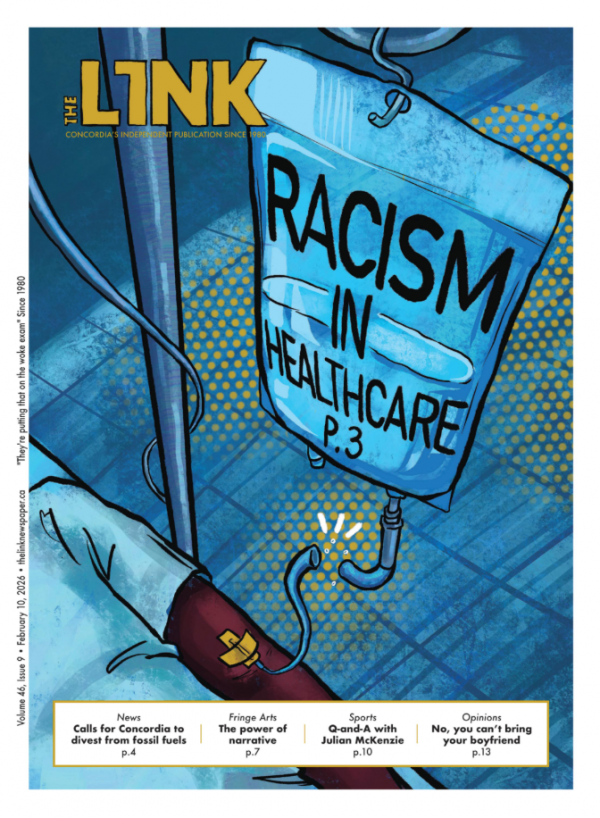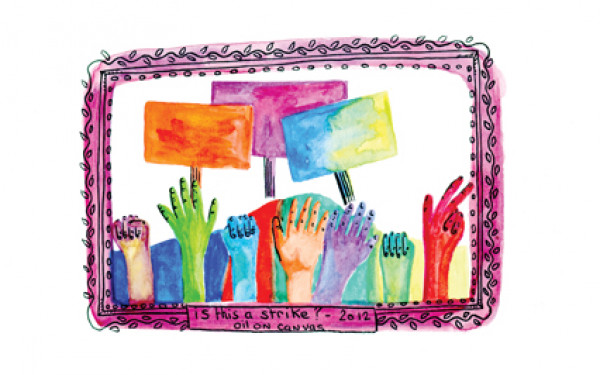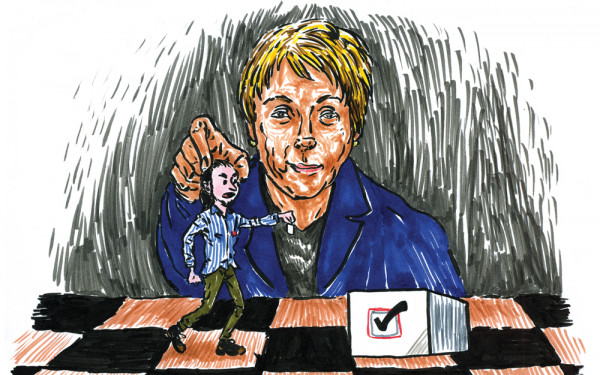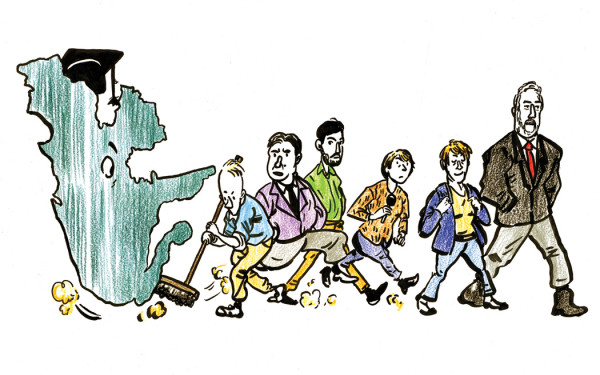Re-grounded, not Rebranded
Community Media Must Remain a Voice for the Voiceless
As the former news director at CUTV, I am disheartened and upset by the recent shift in focus and policy at the TV station.
I worked at CUTV from June 2012 until November of the same year, just after the crescendo in the student uprising and continuing through the Quebec elections, until the station became caught up in conflict. I resigned from my post last fall.
Despite the internal turmoil the station went through during that period, I still feel to this day that the coverage CUTV did around the student strike was groundbreaking and crucial.
Since modern community media first rose to prominence in the mid-20th century, the idea has always been to be a voice for the voiceless.
That is, campus and community media exists because it is recognized that we live in a society of power imbalances—imbalances that are reflected in the mass media—and that if we want to have any semblance of democracy in society, that means carving out spaces where the disenfranchised, marginalized and oppressed can have a voice for self-representation.
Whether or not you agree with the editorial line of CUTV’s coverage during the student strike, the fact of the matter is that thousands of students and young people had their voices heard through the broadcasts, representing a wide range of opinions, from the most radical to those who thought it was important to negotiate with the government for a mediated solution to the strike.
Voices of power and oppression have unlimited access to the airwaves around us. If you wanted to know what the police, the government or university administrations felt about the student strike, all you had to do was open up the Montreal Gazette or switch on CBC or LCN. Why would CUTV want to build a TV station that emulates that unabashed acceptance of the status quo?
There is a dangerous myth in our society of an “unbiased” media. We often perpetuate this myth in our own campus and community media, and I feel that is what would happen if the CUTV Board of Directors imposed a code of ethics for volunteer journalists that would ban the wearing of political symbols.
Simply put, there is no unbiased media. Mainstream media are just better at masking their bias, but at the end of the day they are beholden to their corporate or state funders. An honest media outlet is one that acknowledges its bias, and to whom it is accountable, which is exactly what CUTV did during the student strike.
CUTV is a student-funded TV station; unprecedented tuition hikes in Quebec were threatening students, and therefore CUTV embedded itself in the student movement. There is nothing wrong with that, so long as the bias is made clear from the onset.
With regards to the wearing of political symbols by CUTV journalists, how is wearing a red square in front of the camera any different than a TV newscaster wearing a red poppy in November, or a lapel pin with the Canadian flag? Both are statements either of an acceptance or a rejection of the status quo of power in our society.
In order for CUTV to remain an important bridge between Concordia University and the greater Montreal community, membership must remain open to non-Concordia students (provided they pay an annual membership fee).
The members should be the guiding force of the station, and should be involved in decision-making at all levels, including decisions made by the Board of Directors, as well as day-to-day decisions, something that could be accomplished by having members sit with staff on a steering committee.
Equally important, all CUTV members (which includes all Concordia students who pay the fee levy, as well as the station’s community members), should be able to participate and vote in general meetings.
If the Board of CUTV is going to implement a code of ethics for its volunteer journalists, it could follow the example of CKUT radio and ground its ethics in a commitment to social justice, combating oppression, and providing a balance to mass media news coverage by ensuring access to the airwaves for underrepresented communities in Montreal.
That is, after all, the raison d’être for most campus and community media in North America today.
CUTV doesn’t need to be rebranded. It needs to be re-grounded. Re-grounded in the ethics that made it an essential communication outlet during one of the most successful and exciting popular uprisings in Quebec’s history.
The thousands of viewers who tuned in to the livestream every night of the demonstrations, the masses of people who cheered for CUTV crews in the streets, and the thousands of dollars in viewer donations made to the station should not be so quickly forgotten.
Sure, the station had its share of problems shortly after the student strike last year, but rebranding and depoliticizing the station will not solve those. Strong organization, more membership control and clear journalistic ethics that ground the station in support for social justice struggles and access to education will ensure a long and healthy life for CUTV.
Aaron Lakoff graduated from the communications and women’s studies programs at Concordia. He’s the former news director at CUTV, and is currently working as the news director at CKUT radio at McGill University.





_600_375_90_s_c1.jpg)

